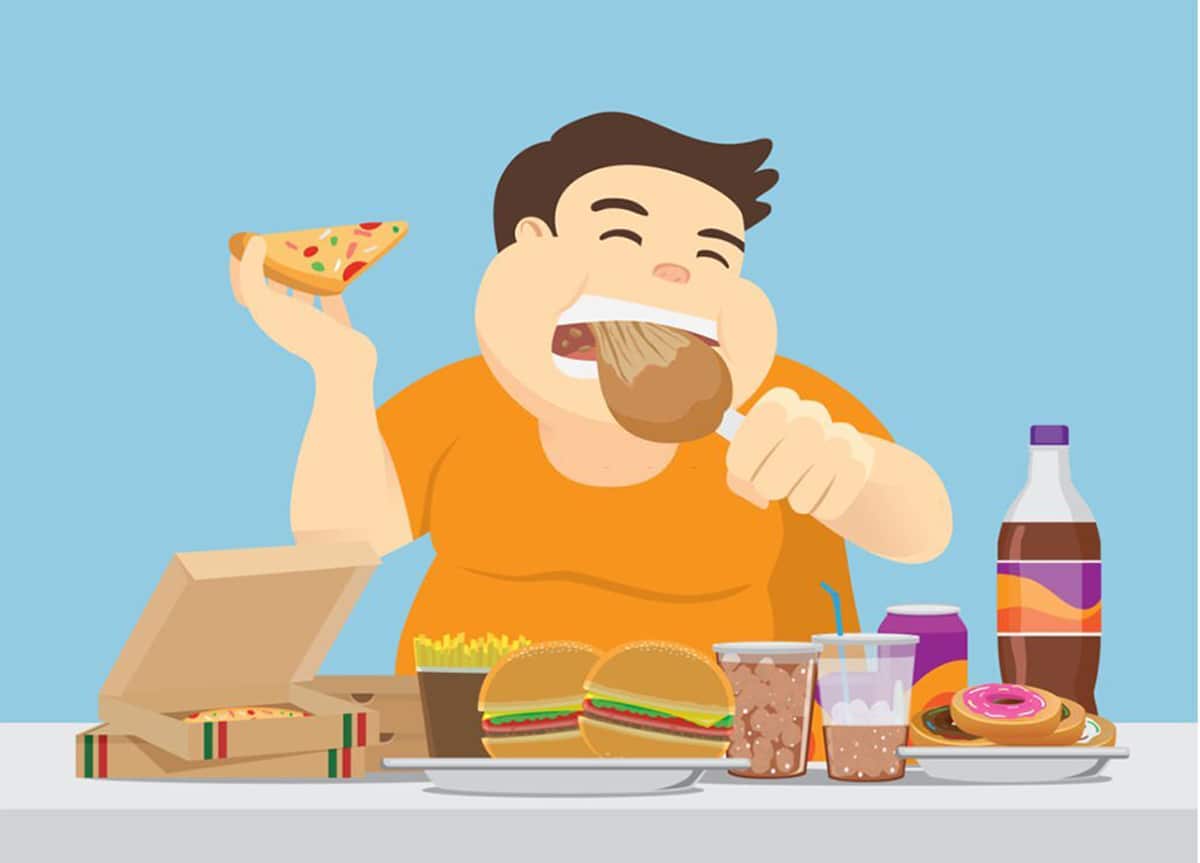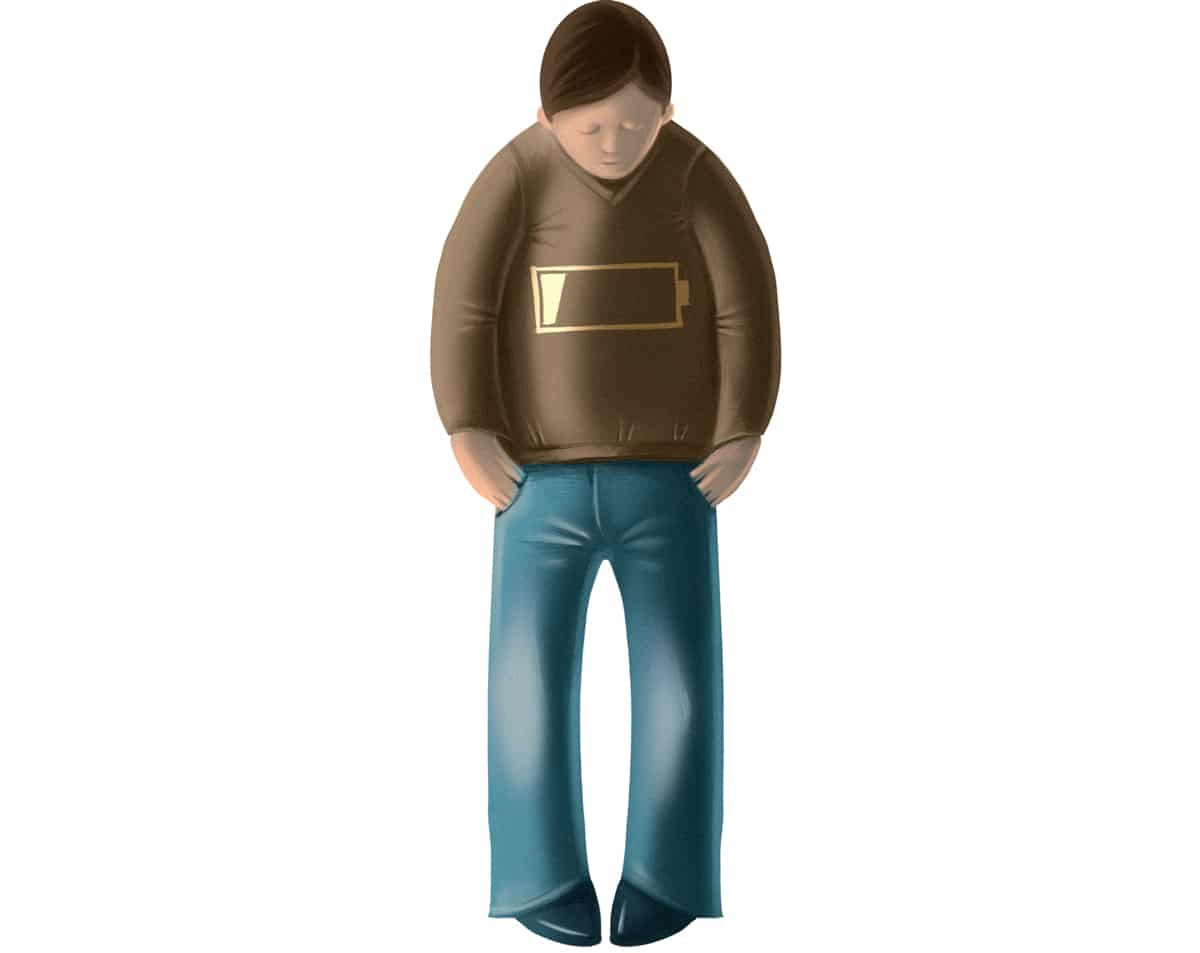(N.b.: books and articles on binge eating are often accompanied by "food porn" of trigger foods, which is very unhelpful for people struggling with binge eating. If this is you, rest assured that there are no pictures of food in this article.)

Binge: it’s an ugly word for an ugly thing. Struggling with binge eating can be exhausting if you’re trying to eat healthy – especially if adopting a Paleo diet didn’t actually do anything to help. For some people, going Paleo does a lot to help them stop binging, but for other people it doesn’t help at all, or even makes the problem worse.
The hard truth is that binge eating is very complicated and it’s often not really about the food at all. Even the healthiest diet will not automatically “cure” a binge eating disorder: it can help, but it’s not a panacea. So here’s a look at binge eating, how it’s affected by diet, and what we can take away from that for Paleo specifically.
Binge Eating: Myths and Truths
First of all, it’s important to be very clear on what the word “binge” actually refers to:
| A “binge” MEANS… | A “binge” DOES NOT MEAN… |
|
|
“Binge” is a very specific term. It is not a synonym for “eating a lot.” Michael Phelps ate 12,000 calories every day to prepare for the 2008 Olympics; that’s an extreme amount of food, but it doesn’t mean he had a binge eating disorder. It’s just the amount of calories he needed to fuel his training. A binge means that you felt out of control while eating: it’s about the mindset, not the amount of food.
Some people binge very infrequently or only once or twice in their whole life; some people binge multiple times a day. The official diagnosis of Binge Eating Disorder (BED) requires at least one binge a week, without purging (if the binge is accompanied by purging behaviors, it’s bulimia). Lifetime prevalence of BED in the US is about 2.6%. Interestingly, unlike most eating disorders, binge eating is just as prevalent in men as it is in women.
A common misconception about binge eating is that it’s either a cause or a symptom of obesity. This is not true. Binge Eating Disorder is not a subtype of obesity. The majority of obese people do not binge. Many people who binge are thin. Binging is more common in obese people, but binging is a behavior, not a weight.
If you have a binge eating disorder, before you read any further, go seek out professional help. There are therapists and other professionals who can help you with this much better than a stranger on the internet. Eating disorders are very complicated and can be deadly. Trying to treat binge eating by yourself with diet is very unlikely to work. Everything below is just laying out some research and ideas to think about; it’s not a substitute for a doctor or psychological help.
Binge Eating and Diet
Now for the million-dollar question: what causes binge eating in the first place? And can you treat it with diet?
Binge Triggers: Food and Mood
Researchers have identified plenty of binge trigger foods – these are foods that people with binge eating disorder commonly crave and/or binge on. They’re exactly the foods you’d expect to see: hyperpalatable, highly-processed foods that combine fat and sugar. Think pizza, chocolate, ice cream, cake, candy, cookies…
The obvious follow-up suggestion would be: to stop binge eating, take those foods out of your diet! From that point of view, Paleo would be the perfect diet to control binges, because there aren’t any ultra-processed foods in sight.
But these foods do not cause binge eating. If the foods themselves were enough to cause binge eating, then everyone who ever saw them would binge every time they were available, and that’s obviously not true. Some people really can have one cookie and then stop.
What’s more, plenty of people will also binge on completely healthy Paleo-friendly food (most commonly nuts, nut butters, and fruit). Those are healthy whole foods; they aren’t “processed” or “refined” by any stretch of the imagination. Clearly, binge eating can’t be caused only by the presence of highly processed or “addictive” food.

The second common binge trigger in the scientific literature is what’s called “negative affect;” in other words, being in a bad mood. Boredom, loneliness, helplessness, stress, anger, fear, and anxiety are all powerful binge triggers. But again, if feeling bad causes binging, then why doesn’t everyone react that way?
So the idea that triggers “cause” binge eating is incomplete. They trigger the behavior, but they’re not the ultimate underlying problem.
Dietary Restraint and Starvation
One alternative explanation is dietary restraint, or dieting. This is the familiar cycle of going on a highly-restrictive crash diet until you drive yourself completely insane with hunger and fall face-first into the ice-cream freezer. Dietary restraint may indeed play a role in triggering binges, especially long-term restraint. Starvation can create a shockingly powerful physiological hunger strong enough to override almost any amount of “willpower” – to take an extreme example, recovering anorexics are at a very high risk of developing BED.
Starvation-induced binging is a real phenomenon, but it can only explain some cases – what about binge-eaters who are normal-weight or obese? What about people who still struggle with binge even though they’re eating Paleo foods to hunger?
Another theory is that it’s the psychological restriction of “dieting” more than the physical hunger, but then why don’t people with Celiac disease all suddenly develop binge eating disorder when they have to adopt a gluten-free diet? This study found that of 283 adolescent patients (the demographic at highest risk for eating disorders) with Celiac Disease, 11 (4.8%) had been diagnosed with any kind of eating disorder at some point and 8 (3.9%) had one at the time of research. That’s higher than the general population, but if restraint causes eating disorders, why didn’t it work that way in the other 91.3% of the study subjects?
Psychology and Brain Chemistry
A possibly more satisfying answer is in the mind. The classic model of eating disorders is that they aren’t really about food at all; they’re an expression of some kind of underlying psychological trauma. Recovery means addressing that trauma. That’s a model that has legitimately helped many people recover: dealing with the emotions first, and letting the food follow. If this resonates with you, then Geneen Roth is a very smart woman who has written a lot about it.
A related issue is brain chemistry. Binge eating has significant similarities to substance abuse disorders, and involves measurable changes in brain chemistry that look a lot like addiction. This could explain why some people respond to trigger foods or dietary restraint with binge behavior, while other people don’t feel the urge to binge at all. And changes in brain chemistry might or might not have anything to do with past psychological pain - Kathryn Hansen makes a compelling case that not everyone binges in response to unaddressed emotions.
In other words: binge eating is complicated. It has many causes and various different triggers, and every person is unique.
Dietary Strategies for Binge Eating
With such a complicated problem, there is no easy solution. Not all binge eating is actually about food. If food is not the problem, then diet changes are not the solution.
But with that said, here are some ways that a healthy diet might affect the physiological triggers of binge eating:
- Normalizing appetite hormones. Insulin, for example, gets all messed up during the course of a binge/purge cycle. A healthy diet with an appropriate level of carbohydrates might help with this.
- Getting off the restriction cycle. A “healthy diet” means “not starving yourself.” It means “eating when you’re hungry.” It means not restricting or obsessively counting calories. Paleo as a solution to binge eating might actually work pretty well if the original problem causing the binges was extreme, restrictive, or miserable “diets," and your version of Paleo involves eating nutrient-dense foods that satisfy your hunger.
- Removing trigger foods. This is a band-aid and not a solution (even if you get them out of your house, you will have to deal with the existence of cake and cookies at some point!) but it can give you some space to heal and recover.
If that looks a little underwhelming…it is! That’s why so many people still struggle with binge eating after going Paleo, because it’s very often not caused by food in the first place. Sometimes eating well can help, especially in the case of past restriction. But sometimes, diet just isn’t the answer – not even Paleo.
Summing it Up
Some people find that Paleo helps a lot with their binge eating; other people see almost no benefit. Binge eating is very complicated and has a lot of potential causes; changing your diet can only address a few of them. Getting out of the cycle of restriction, avoiding trigger foods, and normalizing appetite hormones can help a lot of people, but it’s not a comprehensive solution. That doesn’t mean there’s anything wrong with your diet; it’s just that there are some problems food can’t solve.





Leave a Reply